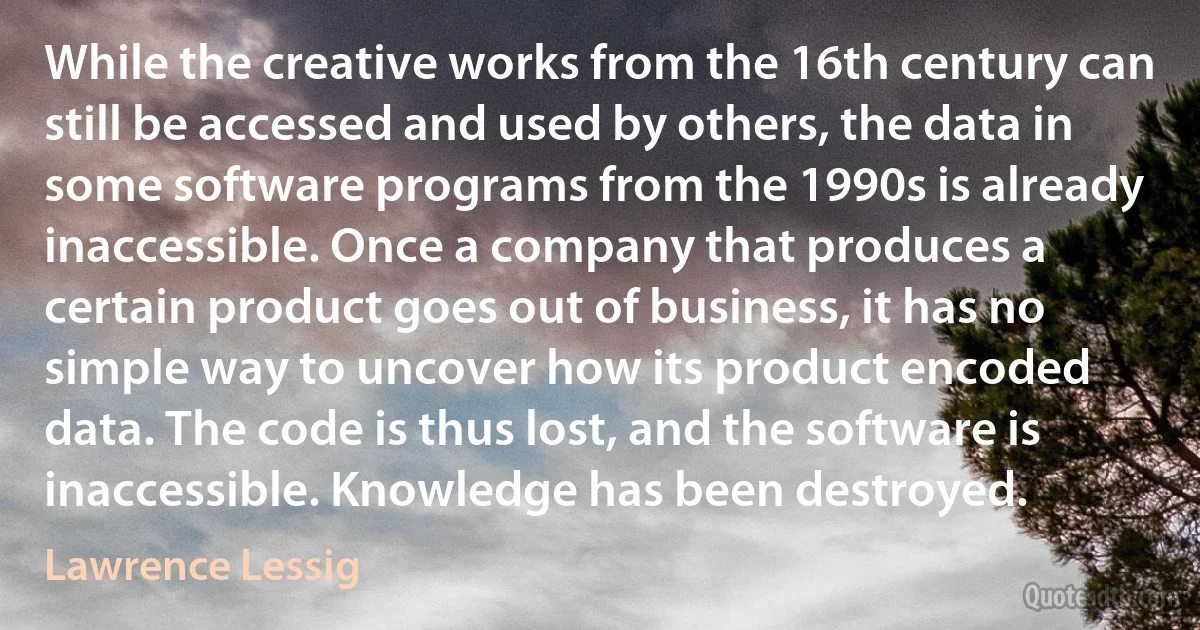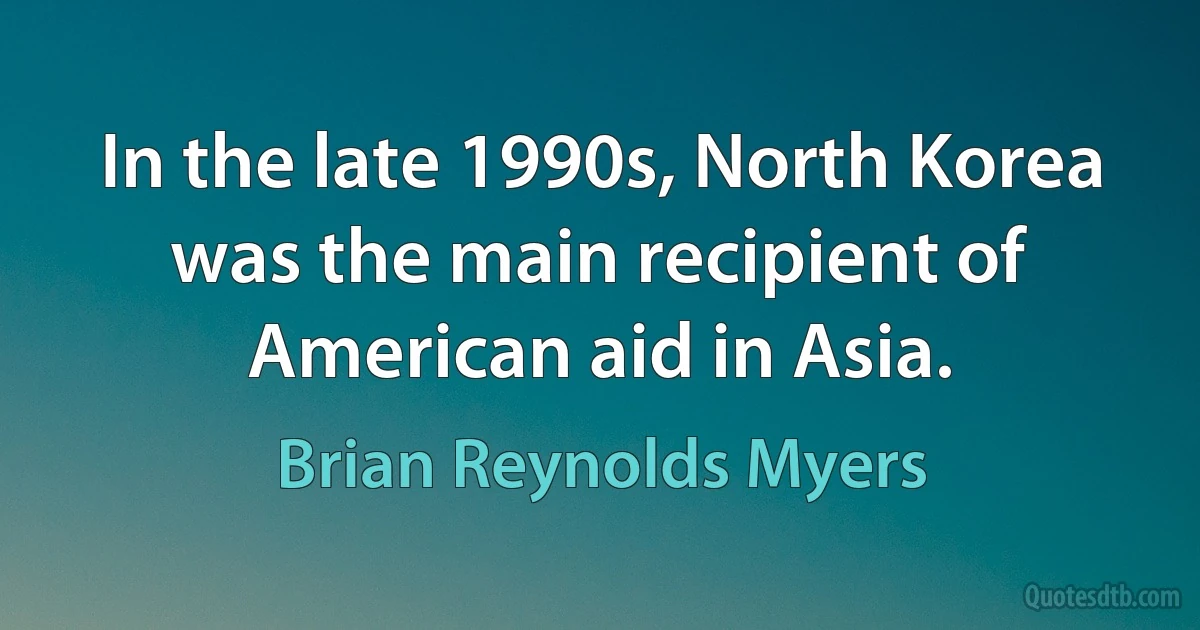1990s Quotes - page 4
In Sudan, Bin Laden decided to acquire and, when possible, use chemical, biological, radiological and nuclear (CBRN) weapons against Islam's enemies. Bin Laden's first moves in this direction were made in cooperation with NIF [Sudan's National Islamic Front], Iraq's intelligence service and Iraqi CBRN scientists and technicians. He made contact with Baghdad with its intelligence officers in Sudan and by a [Hassan] Turabi-brokered June-1994 visit by Iraq's then-intelligence chief Faruq al-Hijazi; according to Milan's Corriere della Sera, Saddam, in 1994, made Hijazi responsible for "nurturing Iraq's ties to [Islamic] fundamentalist warriors. Turabi had plans to formulate a "common strategy" with bin Laden and Iraq for subverting pro-U.S. Arab regimes, but the meeting was a get-acquainted session where Hijazi and bin Laden developed a good rapport that would "flourish" in the late 1990s.

Michael Scheuer
I will take the liberty of saying that we missed the chance we had in the 1990s. The question was posed: what kind of country should we have? A strong country, or a worthy one where people can live decently? We chose the former – a strong country. Once again we are living in an era of power. Russians are fighting Ukrainians. Their brothers. My father is Belarusian, my mother, Ukrainian. That's the way it is for many people. Russian planes are bombing Syria ... A time full of hope has been replaced by a time of fear. The era has turned around and headed back in time. The time we live in now is second-hand ... Sometimes I am not sure that I've finished writing the history of the "Red" man.

Svetlana Alexievich
Apple fans should be scared to death ... Apple is fighting a very similar war to the one it fought - and lost - in the 1990s. It is trying to build the best integrated products, hardware and software, and maintain complete control over the ecosystem around them. This end-to-end control makes it easier for Apple to build products that are 'better,' but it makes it much harder for the company to compete against a software platform that is standard across many hardware manufacturers (Windows in the 1990s, Android now).

Henry Blodget
Frank, you are, without doubt, a scarcity. Anyone who looks at the historical record of the juncture of art and technology finds you nearly unaccompanied when it comes to documenting this historical record between the years of the late-1960's up to the early 1990s. Basically there is you, Jack Burnham's book Beyond Modern Sculpture (1968), and Gene Youngblood's reference work Expanded Cinema (1970). Specifically, your books Origins and Development of Kinetic Art (1968), Art, Action and Participation (1975) and Art of the Electronic Age (1993) are indispensable research tools in helping us figure out how art got to where it is today - in your terms virtualized.

Joseph Nechvatal
The Pentagon's judgments about the world have generally proved sounder than the CIA's. In the 1960s, the CIA said that the Soviets wouldn't put missiles in Cuba; in the 1970s, that their missiles weren't accurate; in the 1980s, that the missile budget wouldn't bankrupt Moscow; and in the 1990s, that Russia's democratic reforms were irreversible. In each case, the Pentagon argued the opposite case, and turned out to be right. Similarly, in the 1980s, the CIA said that the Soviets weren't sponsoring terrorism, and then, in the 1990s, that Sunni and Shiite terrorists wouldn't cooperate. In each case, again, the Pentagon rightly claimed otherwise.

Mark Riebling
Apple is becoming more and more like a typical tech firm - that is, long on technology and short on magic. ... Apple is drifting closer and closer to where it was back in the 1990s. It offers advancements that largely follow those made by others years earlier, product proliferation, a preference for more over simple elegance, and waning excitement.

Rob Enderle
In the late 1990s, some of the worst terrorist atrocities in the world were what the Turkish government itself called state terror, namely massive atrocities, 80 percent of the arms coming from the United States, millions of refugees, tens of thousands of people killed, hideous repression, that's international terror, and we can go on and on.

Noam Chomsky
Future historians will include the no-temple argument of the 1990s as a remarkable case study in their surveys of academic fraud and politicized scholarship. With academic, institutional and media power, a new academic-journalistic consensus has been manufactured denying the well-established history of temple demolition by Islamic iconoclasm to the Babri Masjid-Ram Janmabhoomi site; at least among people with prestige and influence but no firsthand knowledge of the issue. But the facts will remain the facts, and their ongoing suppression is bound to give way as new generations of scholars take a fresh look at the data.

Koenraad Elst
The physical danger in writing against the temple is imaginary; by contrast, it is dangerous to uphold rather than oppose Hindu activist positions. It is a fact that throughout the 1990s, many office-bearers of the RSS, the BJP and their Tamil affiliate Hindu Munnani have been murdered; but that was more because of the demolition and other political matters than because of any statements on the historical background of the Hindu claims on Ayodhya. At one point, the publishinghouse Voice of India, which has published the Vishva Hindu Parishad's statement and several other writings on the Ayodhya evidence, has had to seek police protection for a few days, but the threats had to do with "insults to the Prophet” and not with the Ayodhya evidence.

Koenraad Elst
For those who look at facts rather than at newspaper headlines, it is obvious that there is no danger whatsoever of the US giving the impression of valuing a Muslim life less than a Hindu life. Rather the reverse, and this consistently for decades. In 1971, the Pakistani Army was butchering Hindus in East Bengal by the hundreds of thousands (many times the total number of victims of Hindutva since then), yet the USA stood by Pakistan and did nothing to rein their Islamic allies in. Throughout the 1990s and till today, Pak-backed terrorists have been butchering Hindus in numerous shootings and bomb attacks and ethnically cleansing them from the Kashmir Valley, yet the USA have not used their leverage with Pakistan to stop this continuous terror wave. Dr. Hathaway's misrepresentation of this highly unbalanced American policy adds insult to injury.

Koenraad Elst
It's important to recognize the class origins of this project, which occurred in the 1970s when the capitalist class was in a great deal of difficulty, workers were well organized and were beginning to push back. Like any ruling class, they needed ruling ideas. So, the ruling ideas were that freedom of the market, privatization, entrepreneurialism of the self, individual liberty and all the rest of it should be the ruling ideas of a new social order, and that was the order that got implemented in the 1980s and 1990s.

David Harvey
Common sense says it would be madness for a group of Chechens to smuggle explosives all the way from Urus-Martan to Moscow. Since the First Chechen War, Chechens are routinely singled out for harassment by Russian police, vehicles are stopped and searched, identity papers demanded. Besides, there has long been a strong Chechen mafia in Moscow, very capable of getting its hands on arms or explosives in the city. In Russia, in the 1990s, you could bribe your way into a nuclear rocket silo. The 'Chechen terrorists' would have been risking a great deal by hauling their explosives roughly 1,000 miles to Moscow when they could have bought them at the back of a local flea market.

John Sweeney (journalist)


![Mukesh took that vision [His father's vision] to the next level at the beginning of India's explosive growth in the late 1990s and 2000s and turning his father's growing conglomerate into India's largest company, whose taxes alone provide 5percent of all national government revenues. (Mukesh Ambani)](https://cdn.quotesdtb.com/img/quotes_images_webp/68/mukesh-ambani-beginning-company-970768.webp)
